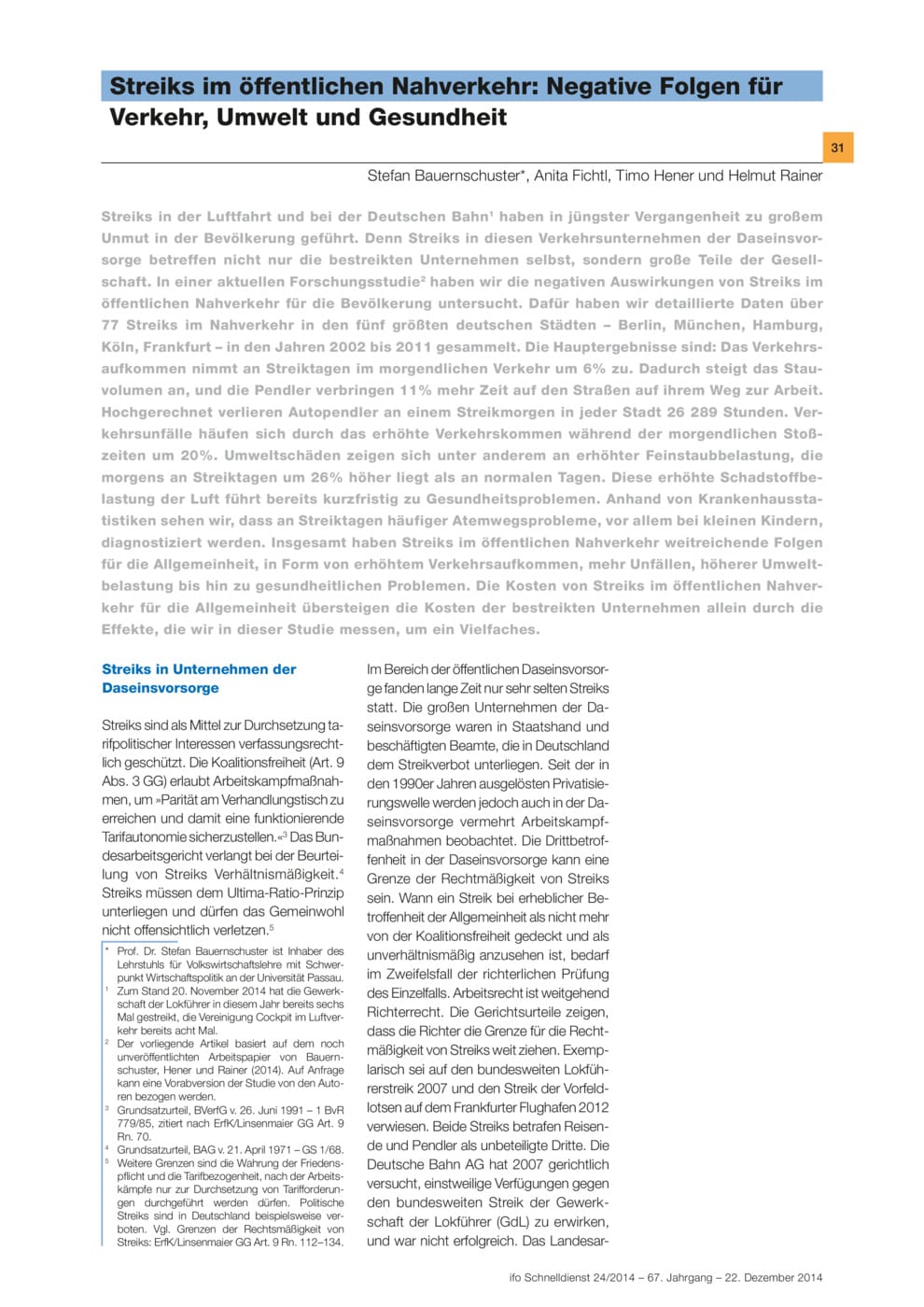Public Local Transport Strikes: Negative Effects on Traffic, the Environment and Health
ifo Institut, München, 2014
ifo Schnelldienst, 2014, 67, Nr. 24, 31-36

Strikes in local public transport not only affect the companies whose employees go on strike, but also great swathes of society. According to the results of a recent study by the Ifo Institute, which analyses data on 77 local public transport strikes in Germany’s five largest cities from 2002 to 2011, traffic volumes in the morning rush hour on strike days increases by 6%. This leads to an increase in road traffic congestion and commuters spend 11% more time on the roads on the way to work. Environmental damages also show an increase in respirable dust pollution, which is 26% higher than usual on the mornings of strike days. These effects mean that the costs of public local transport strikes for the general public therefore exceed the costs incurred by the companies whose employees go on strike. Collective agreement partners do not fully take these social costs of strikes into account in their decision-making. When considering the question of the extent to which curtailing the right to strike is constitutionally acceptable, and /or when a strike is protected by the right to collective bargaining and is justified, the costs to be incurred by the company whose employees are striking are not only to be taken into consideration, but also the negative effects of a strike on the population.